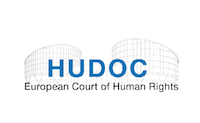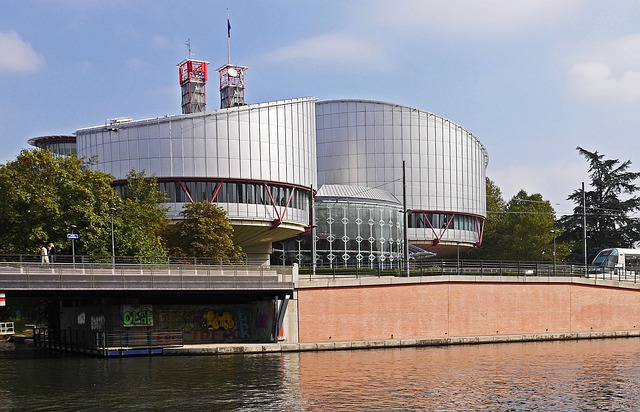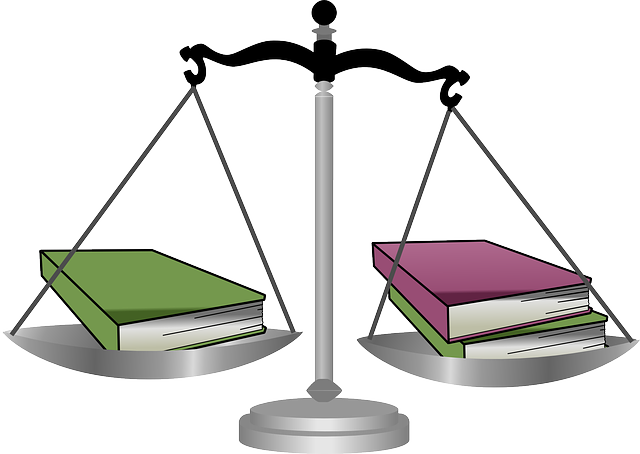0
0
2152
Фабула судового акту: Справа стосується засудження громадянина Франції, який проживав в Англії і керував інтернет-компанією, головний офіс якої розташований в США, що займалась поширенням контенту явно сексуального характеру. Заявник був засуджений до 30 місяців позбавлення волі за публікацію в Інтернеті статей непристойного характеру.
Заявник, посилаючись на статтю 10 Конвенції, скаржився на притягнення його до кримінальної відповідальності та призначення йому покарання за публікацію непристойних матеріалів на інтернет сайті. Заявник стверджував, що дані заходи були втручанням в його право на свободу вираження поглядів, не були передбачені законом та / або не були необхідними в демократичному суспільстві. На його думку, суди Сполученого Королівства мали право засуджувати лише за ті дії по публікації інтернет-сторінок, які відбувалися в межах їх юрисдикції, в той час як основні дії по публікації були здійснені на території Сполучених Штатів Америки.
Суд зазначив, що заявник проживав на території Англії. Як наслідок, він не міг стверджувати, що законодавство Англії було йому недоступне. Крім того, він здійснював професійну діяльність з використанням свого інтернет-сайту, і, отже, від нього можна було очікувати більшої обережності при занятті своєю діяльністю, а також звернення до допомоги юристів.
Визнання поширення певних зображень законним в деяких державах, в тому числі державах, які не є сторонами Конвенції, таких як США, не означає, що, оголосивши такі дії поза законом на своїй території та здійснивши переслідування і засудивши заявника, влада держави-відповідача перевищила надані її межі розсуду.
А той факт, що можуть існувати інші засоби захисту запобігання ненативних наслідків (як батьківський контроль), не веде до невідповідності здійснення владою держави-відповідача кримінального переслідування, особливо коли відсутні докази більшої ефективності цих альтернативних засобів захисту.
З приводу аргументу заявника про те, що інтернет-сайти рідко відкриваються випадково, і зазвичай користувач повинен виконати певний пошук, Європейський Суд зазначив, що інтернет-сторінка, за розміщення якої був засуджений заявник, перебувала у відкритому доступі, і будь-яка особа, що перебуває в Інтернеті, могла її відкрити її.
В результаті Європейський Суд відхилив скаргу на порушення статті 10 Конвенції (як неприйнятну (явно необґрунтовану). Європейський Суд прийшов до висновку, що засудження було необхідним у демократичному суспільстві в інтересах захисту моральності та / або прав та інтересів інших осіб і застосоване покарання було пропорційним.
ЄВРОПЕЙСЬКИЙ СУД З ПРАВ ЛЮДИНИ

FOURTH SECTION
DECISION
AS TO THE ADMISSIBILITY OF
Application no. 5446/03
by Stephane Laurent PERRIN
against the United Kingdom
The European Court of Human Rights (Fourth Section), sitting on 18 October 2005 as a Chamber composed of:
Mr J. Casadevall, President,
Sir Nicolas Bratza,
Mr M. Pellonpää,
Mr R. Maruste,
Mr S. Pavlovschi,
Mr J. Borrego Borrego,
Mr J. Šikuta, judges,
and Mr M. O’Boyle, Section Registrar,
Having regard to the above application lodged on 3 February 2003,
Having deliberated, decides as follows:
THE FACTS
The applicant, Mr Stephane Laurent Perrin, is a French national, who was born in 1971 and lives in Hove, the United Kingdom. He was represented before the Court by J. Welch, a lawyer practising in London.
A. The circumstances of the case
The facts of the case, as submitted by the applicant, may be summarised as follows.
On 25 October 1999 an officer with the Obscene Publications Unit of the Metropolitan Police used, in the course of his duties, a computer at a police station in the United Kingdom to access a web page which he found on the internet. When he viewed that page he saw people covered in faeces, coprophilia, coprophagia and men involved in fellatio. The page was in the form of a preview for other material that could be viewed on payment of a subscription. Anyone wanting more of that type of material could click on to a link marked “subscription to our best filthy sites.” The officer did that and provided his name, address, and credit card details. He was then given access to a second web page which contained similar material to the first. On 12 November 1999 the officer visited the web site again and viewed a third web page.
The applicant was subsequently arrested and interviewed by police officers about his involvement in the publication of internet sites. He stated in his interviews with the police that the internet site viewed by the officer was operated and controlled by Metropole News Group, a company based in the United States of America that complied with all the local laws and of which the applicant was a majority shareholder.
The applicant was charged with three counts of publishing an obscene article, contrary to section 2 of the Obscene Publications Act 1959 (“the 1959 Act”). The three counts related to the three respective web pages which the officer had viewed.
The matter came for trial before Southwark Crown Court in October 2000. At the start, the applicant entered an admission, through his counsel, that he was legally responsible for the publication of the web pages viewed by the police officer. The issue for the jury was whether those pages were obscene within the meaning of section 2 of the 1959 Act. The trial judge directed them as to the definition of “obscene” provided by section 1(1) of the 1959 Act (see below).
On 16 October 2000 the applicant was convicted on the first count, which related to the preview page, and acquitted him on the two other counts. On 6 November 2000 he was sentenced to thirty months imprisonment.
The applicant sought leave to appeal to the Court of Appeal on the ground, inter alia, that his conviction violated Article 10 of the Convention. He submitted that it was an interference with his right to freedom of expression which was neither prescribed by law, nor proportionate. His main point was that the 1959 Act was not sufficiently foreseeable because the major steps towards publication of the web pages had taken place outside the jurisdiction: he maintained that English courts should only be able to convict when the major steps towards publication took place within their jurisdiction. He further submitted that section 2 of the 1959 Act was not sufficiently clear. As to proportionality, he pointed out that similar material was readily available on the internet and that there were better means of inhibiting access, such as industry self-regulation, blockage by service providers and steps taken at home.
On 22 March 2002 the Court of Appeal dismissed his appeal against conviction. It relied on Handyside v. the United Kingdom (judgment of 7 December 1976, Series A no. 24, § 44) and Hoare v. the United Kingdom (no. 31211/96, Commission decision of 2 July 1997) in holding that section 2 of the 1959 Act was sufficiently precise for the interference in question to be prescribed by law.
In regard to proportionality, it reviewed the Convention case law and observed that there was a margin of appreciation in relation to judgments about morality. It held that the interference with the applicant’s freedom of expression was limited in that he was only convicted on the first count. It considered that, even if the 1959 Act only provided limited protection to vulnerable people, there is no reason why a responsible government should abandon that protection in favour of the limited remedies advocated by the applicant. Finally, it noted, on the jurisdictional point, that the applicant’s suggestion, that conviction should only be possible where major steps had been taken towards publication in a place over which the court had jurisdiction, would undermine the aim that the law was intended to protect by encouraging publishers to take the steps towards publication in countries where they were unlikely to be prosecuted. It concluded that the interference in question was justified under Article 10 § 2.
His appeal against sentence was also dismissed, the Court of Appeal finding as follows:
“It is pointed out that this was material that had to be sought out. That, of course, is true. As [counsel for the applicant] accepts, it was available to the young but they had to seek it. On the other hand, it is precisely the sort of material which some young would seek in the privacy of their own bedrooms and it is they who have to be protected, so far as is possible, by the law. There is, as [counsel for the applicant] submits, difficulty with the worldwide web, but it is through the worldwide web that people are able to make very substantial profits....
Finally, it is submitted that, if one looks at the authorities, sentences passed in relation to other offences were not of this magnitude, at any rate where the offence was not, on the face of it, relating to child pornography. That is true so far as it goes, but again the danger in relation to this type of offence was its accessibility to the young and vulnerable. In those circumstances it seems to us that, bearing in mind the statutory maximum of three years, the judge adopted the right approach in this case, and we see no reason to interfere with the sentence which he imposed.”
On 30 October 2002 the House of Lords refused the applicant leave to appeal.
B. Relevant domestic law
The 1959 Act (as amended by the Obscene Publications Act 1964, the Criminal Law Act 1977, the Cinema Act 1985, the Broadcasting Act 1990 and the Criminal Justice and Public Order Act 1994) provides in so far as relevant:
“1. Test of obscenity
(1) For the purposes of this Act an article shall be deemed to be obscene if its effect or (where the article comprises two or more distinct items) the effect of any one of its items is, if taken as a whole, such as to tend to deprave and corrupt persons who are likely, having regard to all relevant circumstances, to read, see or hear the matter contained or embodied in it.
(2) In this Act “article” means any description of article containing or embodying matter to be read or looked at or both, any sound record, and any film or other record of a picture or pictures.
(3) For the purposes of this Act a person publishes an article who –
(a) distributes, circulates, sells, lets on hire, gives, or lends it, or who offers it for sale or for letting on hire; or
(b) in the case of an article containing or embodying matter to be looked at or a record, shows, plays or projects it, or, where the matter is data stored electronically, transmits that data....
2. Prohibition of publication of obscene matter
(1) Subject as hereinafter provided, any person who, whether for gain or not publishes an obscene article or who has an obscene article for publication for gain (whether gain to himself or to another) shall be liable –
(a) ...
(b) on conviction on indictment to a fine or to imprisonment for a term not exceeding three years or both ...
4. Defence of public good
(1) Subject to subsection (1A) of this section [which is concerned with moving picture films or soundtracks] a person shall not be convicted of an offence against section two of this Act, and an order for the forfeiture shall not be made under the foregoing section, if it is proved that publication of the article in question is justified as being for the public good on the ground that it is in the interests of science, literature, art or learning, or of other objects of general concern.”
COMPLAINTS
The applicant complained under Article 10 of the Convention about his conviction and sentence for publishing an obscene article on an internet site. He argued that these constituted interferences with his right to freedom of expression which were not prescribed by law and/or were not necessary in a democratic society.
THE LAW
The applicant invoked Article 10 which provides in so far as relevant:
“1. Everyone has the right to freedom of expression. This right shall include freedom to hold opinions and to receive and impart information and ideas without interference by public authority...
2. The exercise of these freedoms, since it carries with it duties and responsibilities, may be subject to such formalities, conditions, restrictions or penalties as are prescribed by law and are necessary in a democratic society ... for the protection of health or morals, [or] for the protection of the ... rights of others...”
A. Interference
The Court considers that the applicant’s conviction and sentence, under section 2 of the Obscenity Act 1959, as amended (“the 1959 Act”) for publishing an obscene article, constituted an interference with his right to freedom of expression (cf. Müller v. Switzerland, no. 41202/98, §§ 28, 5 November 2002).
B. Prescribed by law
The applicant submitted that section 2 of the 1959 Act was not sufficiently foreseeable to satisfy the requirements of law within the meaning of Article 10 § 2 of the Convention because the major steps towards publication took place in the United States, where the 1959 Act did not apply. He maintained that, because of the worldwide nature of the internet, it was unreasonable for publishers to foresee the legal requirements in all the individual states where the material could be accessed. He suggested that it should only be possible for English courts to convict under the 1959 Act if major steps towards publication had taken place in a location over which they had jurisdiction.
Secondly, and in any case, he submitted that section 2 of the 1959 Act was not sufficiently precise. He distinguished the above-cited Müller case on the grounds that the Swiss law on obscenity had been clarified by various judgments, whereas in the United Kingdom the decisions were taken by juries, whose decisions were not accompanied by reasons.
The Court recalls its judgment in the above-cited Müller case (at § 29):
“According to the Court’s case-law, “foreseeability” is one of the requirements inherent in the phrase “prescribed by law” in Article 10 § 2 of the Convention. A norm cannot be regarded as a “law” unless it is formulated with sufficient precision to enable the citizen - if need be, with appropriate advice – to foresee, to a degree that is reasonable in the circumstances, the consequences which a given action may entail .... The Court has, however, already emphasised the impossibility of attaining absolute precision in the framing of laws, particularly in fields in which the situation changes according to the prevailing views of society ... . The need to avoid excessive rigidity and to keep pace with changing circumstances means that many laws are inevitably couched in terms which, to a greater or lesser extent, are vague ... . Criminal-law provisions on obscenity fall within this category.”
In the present case, the Court notes that the applicant was a resident of the United Kingdom. As a result, he cannot argue that the laws of the United Kingdom were not reasonably accessible to him. Moreover, he was carrying on a professional activity with his internet site and could therefore be reasonably expected to have proceeded with a high degree of caution when pursuing his occupation and to take legal advice (see, for example, Chauvy and Others v. France, no. 64915/01, §§ 44 and 45, ECHR 2004‑...).
In regard to the applicant’s second submission, the Court recalls that section 2 of the 1959 Act has, on two previous occasions, been found by the Convention organs to satisfy the requirements inherent in the phrase “prescribed by law” in Article 10 § 2 of the Convention (i.e. the above-cited cases of Handyside and Hoare). It is true that those cases did not involve publication on the internet but section 1(3) of the 1959 Act (as amended) makes clear that the Act applies to the transmission of data that is stored electronically.
In addition, the Court observes that section 1(1) of the 1959 Act clarifies the definition of “obscene”. It provides that an article is “obscene” where its effect is “such as to tend to deprave and corrupt persons who are likely, having regard to all relevant circumstances, to read, see or hear the matter contained or embodied in it”.
Against this background, it cannot be said that the law in question did not afford the applicant adequate protection against arbitrary interference. The Court therefore concludes that the impugned interference was "prescribed by law" within the meaning of Article 10 § 2 of the Convention.
C. Legitimate Aim
The applicant did not dispute, and the Court finds, that the interference pursued the legitimate aims of protecting morals and/or the rights of others.
D. Proportionality
The Court recalls the relevant principles established by its case-law as set out in the above-cited Müller case, (at §§ 32-35):
“The Court has consistently held that in Article 10 § 2 the adjective “necessary” implies the existence of a “pressing social need” ...
In this connection, the Court must reiterate that freedom of expression, as secured in paragraph 1 of Article 10, constitutes one of the essential foundations of a democratic society, indeed one of the basic conditions for its progress and for the self-fulfilment of the individual. Subject to paragraph 2, it is applicable not only to “information” or “ideas” that are favourably received or regarded as inoffensive or as a matter of indifference, but also to those that offend, shock or disturb the State or any section of the population. Such are the demands of that pluralism, tolerance and broadmindedness without which there is no “democratic society” (see the Handyside judgment of 7 December 1976, Series A no. 24, p. 23, § 49)...
Today, as at the time of the Handyside judgment ..., it is not possible to find in the legal and social orders of the Contracting States a uniform European conception of morals. The view taken of the requirements of morals varies from time to time and from place to place, especially in our era, characterised as it is by a far-reaching evolution of opinions on the subject. By reason of their direct and continuous contact with the vital forces of their countries, State authorities are in principle in a better position than the international judge to give an opinion on the exact content of these requirements as well as on the “necessity” of a “restriction” or “penalty” intended to meet them.”
1. Conviction
The applicant submitted that his conviction was disproportionate. In the first place, he argued that there should not be a wide margin of appreciation in this area because that would amount to imposing moral standards on publishers of a web page that are not regarded as necessary in the society where the major steps concerned with publication took place. Secondly, he argued that prosecution under section 2 of the 1959 Act was unlikely to have any significant impact on the protection of morals because similar material was available on other sites. He drew an analogy with the case of Observer and Guardian v. the United Kingdom (judgment of 26 November 1991, Series A no. 216) where the Court held that an injunction to prevent the publication of the “Spycatcher” book was no longer necessary because the information was already available. Thirdly, he submitted that other measures would be more effective to achieve the aims in question, such as parental control software packages, making the accessing of the sites illegal and requiring Internet Service Providers (“ISPs”) to block access. Fourthly, he pointed out that web sites were rarely accessed by accident.
As to the applicant’s first argument, the fact that dissemination of the images in question may have been legal in other States, including non-Parties to the Convention such as the United States, does not mean that in proscribing such dissemination within its own territory and in prosecuting and convicting the applicant, the respondent State exceeded the margin of appreciation afforded to it. As the Court observed in its Handyside judgment (cited above, at § 57):
“The Contracting States have each fashioned their approach in the light of the situation obtaining in their respective territories; they have had regard, inter alia, to the different views prevailing there about the demands of the protection of morals in a democratic society. The fact that most of them decided to allow the work to be distributed does not mean that the contrary decision of the Inner London Quarter Sessions was a breach of Article 10.”
The Court is further unable to accept the applicant’s second argument. As the Court of Appeal pointed out, the fact that the 1959 Act may provide only limited protection to vulnerable people is no reason why a responsible Government should abandon the attempt to protect them. The present case is not comparable to the Observer and Guardian case on which the applicant relies: there is a clear difference between what is necessary to preserve the confidentiality of secret information, which is compromised after the very first publication of the information and what is necessary to protect morals, where harm can be caused at any time at which a person is confronted with the material.
As to the third argument, the fact that there may be other measures available to protect against the harm does not render it disproportionate for a Government to resort to criminal prosecution, particularly when those other measures have not been shown to be more effective.
As to the applicant’s further argument that websites are rarely accessed by accident and normally have to be sought out by the user, the Court notes that the web page in respect of which the applicant was convicted was freely available to anyone surfing the internet and that, in any event, the material was, as pointed out by the Court of Appeal, the very type of material which might be sought out by young persons whom the national authorities were trying to protect.
The Court further observes that it would have been possible for the applicant to have avoided the harm and, consequently, the conviction, while still carrying on his business, by ensuring that none of the photographs were available on the free preview page (where there were no age checks). He chose not to do so, no doubt because he hoped to attract more customers by leaving the photographs on the free preview page.
In conclusion, the Court is satisfied that the applicant’s criminal conviction could be regarded as necessary in a democratic society in the interests of the protection of morals and/or the rights of others. It follows that this part of the application is manifestly ill-founded within the meaning of Article 35 § 3 of the Convention.
2. Sentence
In the alternative, the applicant submitted that his sentence of imprisonment was disproportionate. He pointed out that there was no evidence at trial that the publication of the material in question was unlawful in the society where major steps towards publication had taken place. He argued that this demonstrated that the material was not of the most offensive nature.
The Court recalls its judgment in Cumpǎnǎ and Mazǎre v. Romania ([GC], (no. 33348/96, § 111, ECHR 2004‑...):
“The nature and severity of the penalties imposed are factors to be taken into account when assessing the proportionality of an interference with the freedom of expression guaranteed by Article 10 ... . The Court must also exercise the utmost caution where the measures taken or sanctions imposed by the national authorities are such as to dissuade the press from taking part in the discussion of matters of legitimate public concern ... .”
In Skałka v. Poland (no. 43425/98, § 41, 27 May 2003) the Court said:
“Even if it is in principle, for the national courts to fix the sentence, in view of the circumstances of the case, there are common standards which this Court has to ensure with the principle of proportionality. These standards are the gravity of the guilt, the seriousness of the offence and the repetition of the alleged offences.”
In the present case, the Court considers that a prison sentence was clearly proportionate. The applicant did not dispute, either before the Court of Appeal or this Court, the seriously obscene nature of the preview page. Unlike in the above-cited Cumpǎnǎ case and as noted above, the purpose of the present expression was purely commercial and there is no suggestion that it contributed to any public debate on a matter of public interest or that it was of any artistic merit: the applicant’s conviction cannot therefore be said to engender any obviously detrimental chilling effect. Moreover, given that the applicant stood to gain financially by putting obscene photographs on his preview page, it was reasonable for the domestic authorities to consider that a purely financial penalty would not have constituted sufficient punishment or deterrent.
The Court does not consider that the length of the sentence itself renders the interference disproportionate. In fixing the sentence, the domestic courts assess the seriousness of the offence. That assessment depends on their view of the demands of the protection of morals, an area where national authorities are usually granted a wide margin of appreciation (cf. the above-cited Handyside judgment, at § 57). Even having regard to the fact that this was the applicant’s first conviction for an offence of this kind, the Court does not consider that a sentence of thirty months, where he would be automatically entitled to release on licence after fifteen months (see Ezeh and Connors v. the United Kingdom [GC], nos. 39665/98 and 40086/98, § 48, ECHR 2003‑X), could be said to have exceeded the national courts’ margin of appreciation in this area.
It follows that this part of the application is also manifestly ill-founded within the meaning of Article 35 § 3 of the Convention and that the application as a whole is inadmissible within the meaning of Article 35 § 4 of the Convention.
For these reasons, the Court unanimously
Declares the application inadmissible.
Michael O’Boyle Josep Casadevall
Registrar President
Переглядів
Коментарі
Переглядів
Коментарі
Отримайте швидку відповідь на юридичне питання у нашому месенджері, яка допоможе Вам зорієнтуватися у подальших діях
Ви бачите свого юриста та консультуєтесь з ним через екран , щоб отримати послугу Вам не потрібно йти до юриста в офіс
Про надання юридичної послуги та отримайте найвигіднішу пропозицію
Пошук виконавця для вирішення Вашої проблеми за фильтрами, показниками та рейтингом

Переглядів:
3983
Коментарі:
0

Переглядів:
13786
Коментарі:
1

Переглядів:
7277
Коментарі:
1

Переглядів:
1269
Коментарі:
0

Переглядів:
1203
Коментарі:
0

Переглядів:
1091
Коментарі:
0

Protocol.ua є власником авторських прав на інформацію, розміщену на веб - сторінках даного ресурсу, якщо не вказано інше. Під інформацією розуміються тексти, коментарі, статті, фотозображення, малюнки, ящик-шота, скани, відео, аудіо, інші матеріали. При використанні матеріалів, розміщених на веб - сторінках «Протокол» наявність гіперпосилання відкритого для індексації пошуковими системами на protocol.ua обов`язкове. Під використанням розуміється копіювання, адаптація, рерайтинг, модифікація тощо.
Повний текстCopyright © 2014-2024 «Протокол». Всі права захищені.
